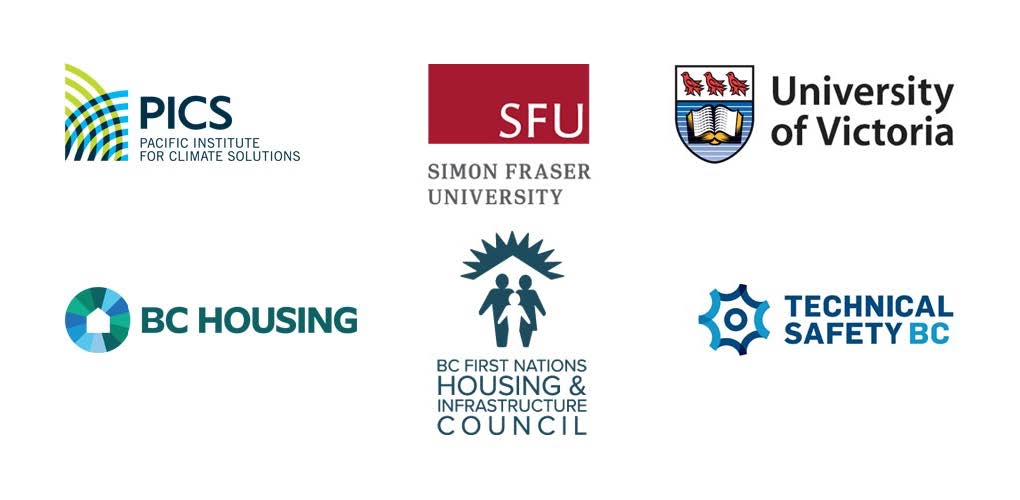We have identified a technical issue in Online Services that has caused some users to be unable to view their certificates. We’ve made an update that should fix this issue, and we encourage you to try logging in again. If the issue persists, please contact us.
We have identified a technical issue in Online Services that has caused some users to be unable to view their certificates. We’ve made an update that should fix this issue, and we encourage you to try logging in again. If the issue persists, please contact us.
SFU, UVic Team Receives $1 million to Study Climate Solutions for Rural, Remote and Indigenous Communities
April 20, 2023
Pacific Institute for Climate Solutions funds multi-partner research to create resilience, reduce emissions and lessen climate impacts
An interdisciplinary team from Simon Fraser University, the University of Victoria and partner organizations will use $1 million from the Pacific Institute for Climate Solutions to study climate solutions for rural, remote and Indigenous communities in BC.
Serving Rural & Remote Communities: Co-developing Place-Based Climate Resilient Solutions will investigate how these communities will be impacted by climate change and what they need to flourish despite its challenges.
Researchers will work with the First Nations Housing and Infrastructure Council, BC Housing and Technical Safety BC to develop and deliver the research. Together, the partners will determine what policies and innovations in housing practices and technical safety are needed to enable communities outside major urban centres to create low-carbon resilience, reducing both their carbon footprint and their vulnerability to the impacts of climate change.
“The focus of the project is on preparing communities, people and economies for the coming climate impacts,” says principal investigator Nancy Olewiler, a professor in SFU’s School of Public Policy, whose team includes Maya Gislason of SFU’s Faculty of Health Sciences, professors David Bristow and Andrew Pape Salmon of UVic’s Department of Civil Engineering and colleagues from the University of Waterloo and the University of Washington.
Critical to the project’s success is the pairing of technical knowledge from partner organizations with local knowledge among rural, remote and Indigenous communities, says Bristow.
Michael Sadler, executive director of the First Nations Housing and Infrastructure Council, agrees. “We know we need to assist our Nations to create housing that’s resilient and responsive to climate change,” says Sadler. “This resilience is not new for Indigenous Peoples. We have been expert builders from time immemorial, constructing advanced technological solutions for our respective locations and climates.”
Adds Rod Hill, acting director, Indigenous Relations, BC Housing: “Through this project, BC Housing aims to amplify the voices of Indigenous Peoples, to enable communities and community members to articulate the climate changes happening in their territory, and what measures they need to build resilience to address them.”
While people living in urban centres feel the effects of climate change in heatwaves and extreme rains, Olewiler says their remote and rural counterparts face a larger variety of risks— including wildfires, floods and landslides. These threaten lives, homes, and other buildings, as well as jobs and local economies — and smaller population centres may have less capacity to address their risks.
“We’ll be making discovery of what types of challenges communities are facing and then building strategy to ensure we can be proactive, instead of reactive, toward the changing landscape of climate interaction,” says Marci McDougall, Technical Safety BC’s leader of Indigenous reconciliation and partnerships.
Over the next four years, the project will entail designing practical frameworks to build climate resilience and capacity in these communities. Community findings and case studies will help inform updates to building and safety codes and standards, as well as regulations and policies.
The project team will be hosting a workshop for rural and remote First Nations in May to introduce the research goals, explore shared interests, and help develop community partners for the pilot studies.
“Indigenous knowledge is a form of Indigenous science, and when we link that with academic scholarship and these organizations working in this space, we’re building knowledge that is holistic, integrative and respectful,” says PICS executive director Ian Mauro. “And that’s what PICS stands for and will make a priority moving forward.”
About the Pacific Institute for Climate Solutions
The Pacific Institute for Climate Solutions is a climate research collaboration between its four partner universities — the University of Victoria, Simon Fraser University, the University of British Columbia, and the University of Northern British Columbia — that develops innovative, evidence-based climate solutions knowledge actively used by decision-makers.
About Simon Fraser University
As Canada’s engaged university, SFU works with communities, organizations and partners to create, share and embrace knowledge that improves life and generates real change. We deliver a world-class education with lifelong value that shapes change-makers, visionaries and problem-solvers. We connect research and innovation to entrepreneurship and industry to deliver sustainable, relevant solutions to today’s problems. With campuses in British Columbia’s three largest cities—Vancouver, Burnaby and Surrey—SFU has eight faculties that deliver 364 undergraduate degree programs and 149 graduate degree programs to more than 37,000 students. The university now boasts more than 180,000 alumni residing in 145+ countries.
About the University of Victoria
UVic is one of Canada’s leading research-intensive universities, offering life-changing, hands-on learning experiences to more than 21,000 students on the edge of the spectacular BC coast. As a hub of transformational research, UVic faculty, staff and students make a critical difference on issues that matter to people, places and the planet. UVic consistently publishes a higher proportion of research based on international collaborations than any other university in North America, and our community and organizational partnerships play a key role in generating vital impact, from scientific and business breakthroughs to achievements in culture and creativity. Find out more at uvic.ca.
Territory acknowledgement
Follow us on Twitter: @uvicnews
UVic media relations & services: www.uvic.ca/communicationsmarketing/media
